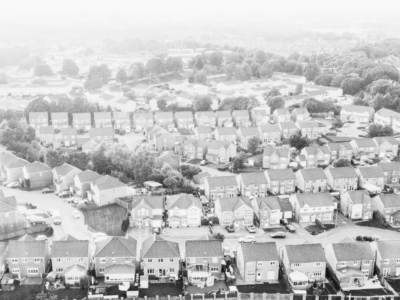Change is in the air, and the UK is aiming to achieve net-zero carbon emissions by 2050. Despite green shoots of an eco-friendly revolution, the majority of Brits are unaware about the energy efficiency ratings of their homes.
In addition, most people have no plans to make their properties greener, according to Nationwide.
The news will be a disappointment for the Government, which has been keen to flex its green credentials, since unveiling plans in October 2019 to build a more sustainable housing market.
Energy rating eludes many
Introduced in 2007, the Energy Performance Certificate (EPC), a metric of domestic energy efficiency, rates homes on both a colour-coded scale, with scores from A–G, and a points-based system, from one to 100.
The higher the score and the more points a home has, the more efficient it is and the lower its potential running costs are likely to be, when it comes to energy usage.
Despite the EPC’s clear-cut way of measuring efficiency, however, Nationwide found that 44 per cent of people were unaware what the EPC rating actually was. In addition, 82 per cent had no idea about how green their house was, through the EPC system.
Something which will really concern eco-friendly policy makers is the fact that 54 per cent of Brits said they had no plans to make green improvements to their properties over the next year. However, 47 per cent admitted they would be more likely to make such improvements, so long as the government offered suitable incentives.
Positive signs of a green revolution
Despite the lack of knowhow over energy efficiency, Nationwide did note some rays of light when it came to homeowners making tangible steps to reduce emissions. This is important, because 15 per cent of the UK’s total carbon emissions stem from houses themselves.
Nationwide reported that 75 per cent of respondents made the choice to switch to more energy-efficient lightbulbs, while 65 per cent had installed loft insulation, something which helps retain heat in the home , saving homeowners a significant sum in their energy bills over time.
There was some uncertainty about how Brits viewed their contribution to the issue of climate change, as 49 per cent of respondents had no worries about the impact of their own personal carbon footprint, while just two per cent of Brits claimed to own electric cars.
Nationwide took the view that plans to reduce the UK’s carbon footprint remain distant. Only a small fraction of people are taking active steps to help reduce their emissions with measures such as using air-source heat pumps or solar panels to power their homes.
According to Joe Garner, chief executive of Nationwide, “Our social purpose is to help people into a place fit to call home, but it’s equally important that we also look at how homes contribute towards emissions, as part of the bigger picture…As our research shows, real change will only be achieved if there is incentivisation.”
The move towards a greener housing market has been a tricky balancing act for the Government in recent years. With a growing population, there has been tremendous pressure to build more affordable homes, but this is having to be balanced with protecting the UK’s natural environment.





















Comments